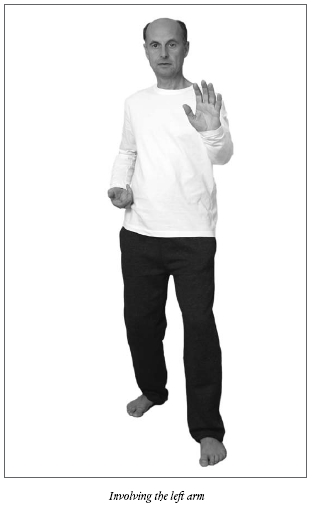Nigel Mills, is an accredited Clinical Psychologist, Craniosacral Therapist and EMDR therapist. He is also an experienced teacher of Qigong. Nigel currently works as an independent therapist in Abergavenny, South Wales, UK.
Here, Nigel answers some questions about his new book Qigong for Multiple Sclerosis: Finding Your Feet Again.
 Your book is the result of a research study funded by the NHS. What motivated you to launch this study of Qigong and MS, and to write the book?
Your book is the result of a research study funded by the NHS. What motivated you to launch this study of Qigong and MS, and to write the book?
In the late 1990’s I was employed as a clinical psychologist in the NHS, and part of my role was to see people with MS to try and help with their feelings of anxiety and depression. It became apparent that a lot of people’s psychological problems stemmed from a sense of vulnerability and helplessness, which in turn stemmed from a sense that the body was out of control and somehow alien. It seemed to me that rather than ‘just talking’ it may be more useful to explore some practical ways to re-connect with the body and to improve confidence in being able to balance and move. My own practice of Qigong led me to think that Qigong might be very useful for the sort of difficulties faced by people with MS.
How does Qigong benefit people who suffer from MS both mentally and physically? What difference can it make to their lives?
One of the most important specific benefits is an improvement in balance and a greater sense of ‘ownership of the body. Qigong encourages a way of moving which is very stable and integrated, and the mind ‘enters’ the body in a fuller way. The subsequent improvement in balance goes on to help people regain their confidence in movement and thus improves confidence generally. Secondly people report a greater calmness and an enhanced ability to cope with stress. This can make an enormous difference to the quality of life for someone with MS
Can Qigong benefit people at any stage of MS?
Yes, different people gain different things from the programme depending on their stage of MS. But the programme has something to offer everyone. People with mild symptoms report benefit from the greater calmness and sense of being grounded and the feeling that they are doing something to maximise their functioning for as long as possible. People who may be wheel chair users, like the fact that many of the exercises can be adapted for a sitting position and still benefit from the sense of being able to inhabit their body in a fuller and more compassionate manner.
Research has shown that certain exercises can be harmful for people with MS. How is Qigong different from other forms of exercise?
The essence of Qigong is softness and flowing. Not forcing anything, but allowing movement to come forth. The mind doesn’t coerce the body, as in some forms of exercise, rather the mind follows the body and follows the breath.
What is a ‘Qigong attitude’, and why is it particularly important for people with MS to develop this outlook?
‘Being with’, rather than ‘doing to’. Using the attention to follow rather than lead. Softening and flowing rather than forcing. Compassion rather than blame. These are elements of a ‘Qigong attitude. It is important for people with MS not to ‘enter into battle’ with their body. This will only increase their sense of stress. The task is to befriend the body and then everything can calm down and slow down.
Copyright © Jessica Kingsley Publishers 2010.